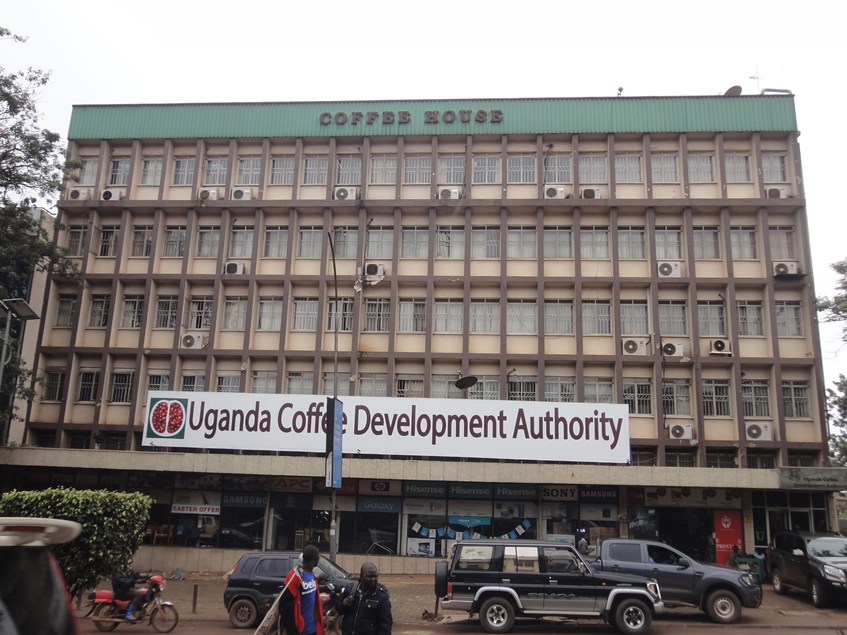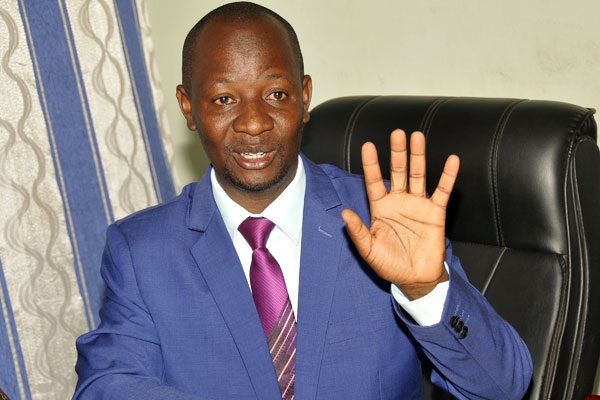The discussion around merging the Uganda Coffee Development Authority (UCDA) with the Ministry of Agriculture, Animal Industry, and Fisheries (MAAIF) has resurfaced, with the government pushing to merge the country’s primary coffee authority, which has recently shown significant progress, according to coffee export statistics.
Earlier this year, Parliament rejected a similar proposal to merge the National Agricultural Advisory Services (NAADS), UCDA, the Cotton Development Organization (CDO), and the Dairy Development Authority (DDA) into MAAIF.
Legislators argued that these agencies do not fit the criteria outlined in the rationalization policy. They emphasized that agencies like UCDA and DDA are crucial for generating both domestic and foreign revenue and that their mandates do not overlap.
The Parliament unanimously agreed that sectors like coffee, dairy, and cotton require specialized agencies to oversee production and enforce quality assurance for exports to sustain the country’s current achievements.
“In all successful coffee-producing and exporting countries including Brazil and Vietnam coffee is regulated by a special agency. The civil service mode of operation and service delivery cannot efficiently undertake and deliver this mandate and Uganda is not about to retract from the coffee road map of achieving 20 million bags by 2030,” said the members.
However, the conversation has resurfaced, this time focusing solely on merging UCDA with MAAIF, leaving the other authorities untouched. This move remains delicate and is viewed from different perspectives. While it is promoted as a strategic alignment to enhance efficiency and streamline operations, it raises significant concerns.
Critics argue that this consolidation could inadvertently undermine the coffee sector, potentially jeopardizing the livelihoods of countless Ugandans who rely on coffee as their primary source of income.
The debate is particularly concerning as it comes at a critical time when UCDA is undertaking the crucial task of registering coffee farmers, a process that requires serious sensitization efforts.
Registering coffee farmers is a vital step for Uganda’s coffee export industry, especially in light of the European Union’s 2023 legislation, the ‘European Union Regulation on Deforestation-free Products’ (EUDR). This regulation aims to prevent products linked to deforestation and forest degradation from entering the EU market. To comply, Uganda must ensure all coffee farmers are registered by the deadline of December 30, 2024.
This registration exercise is beyond the capacity of MAAIF, which lacks the specialized expertise that UCDA has developed over time through extensive training. If the registration process fails, Uganda’s coffee sector could face significant setbacks in accessing the EU market.
In an interview with Business Focus, a new website, Gerald Ssendaula, the former Minister of Finance and a prominent coffee farmer has described as “unfortunate” the decision that will leave Uganda’s coffee farmers in limbo.
“The issue of incorporating UCDA into the ministry of agriculture is the most regrettable point. There’s already a new National Coffee Act, 2021. It’s perfect. It came in handy (unlike before, the Act gives UCDA powers to regulate all on-farm and off-farm activities in the coffee value chain). What we needed to implement was to separate the regulator (UCDA) (from MAAIF). Let UCDA regulate the sector. If you want, you can take away the promotion function to another ministry of trade or agriculture but UCDA should retain the regulatory arrangement. This is because, if we are to succeed in coffee, we need successful and viable seedlings and you are not going to achieve this through the ministry,” Ssendaula said in the interview.
Ssendaula who also serves as the chairman of the National Union of Coffee Agribusinesses Farm Enterprises (NUCAFE), a coffee farmers’ national organization, argues that merging the coffee authority into the ministry will lead to inefficiency, allowing unscrupulous individuals to compromise the coffee value chain from farm to cup by affecting quality control.
“The ministry’s bureaucracy is cumbersome and time-consuming. Effective regulation of nursery beds is crucial to ensure farmers receive high-quality plantlets. If coffee regulation and promotion fall under the ministry, it will hinder success and potentially harm this vital national crop that sustains our economy.”
He stresses the importance of giving agriculture special consideration, noting, “We need realistic targets when merging government agencies. Merging UCDA with the agriculture ministry may not yield the desired results. Like the Uganda Revenue Authority’s success as an independent entity, UCDA would be more effective on its own.”
During the UCDA era, coffee production significantly increased from 2.1 million 60kg bags in FY 1991/92 to over 8.1 million 60kg bags annually, making Uganda the eighth-largest coffee producer globally.
UCDA supported the private sector in developing high-yielding and coffee-wilt-resistant seedlings, distributed millions of healthy planting materials, funded coffee research, and trained extension workers to assist farmers. As a result, at least ten high-yielding and wilt-resistant coffee varieties were developed, and specialized extension workers were deployed to all 126 coffee districts, improving the quality of Uganda’s coffee, which now ranks third globally.
Dissolving UCDA would risk losing these substantial gains. Under the current National Development Plan III, merging entities means that different coffee value chain activities would be divided among various ministries—for instance, production under MAAIF and processing and marketing under the Ministry of Trade, Industries, and Cooperatives (MTIC).
Even if MAAIF absorbed all UCDA staff, they would be distributed across different ministries, complicating coordination and threatening the smooth execution of value chain activities. Past reviews of Uganda’s National Development Plans have consistently identified working in silos as a significant barrier to effective government implementation.
Borrowing a Leaf From other Countries
In 2013, the Kenyan government merged the country’s Coffee Board with the Agriculture Food Authority. Ten years later, Kenya’s production has reduced by 69.2 percent. Kenya is in the process of giving back autonomy to the Coffee Board.
Dissolving the authority is a bad idea and will reverse the gains in revamping the coffee sector. In addition, MAAIF will find it hard to coordinate the different coffee value chain activities, which are likely to have far-reaching effects on the agro-industrialization agenda.
In the global market, Uganda competes with major coffee producers like Brazil and Ethiopia, which have established robust policies and dedicated authorities to monitor the quality of their coffee value chains, ensuring they do not compromise on standards.
In these countries, the Coffee Authorities operate independently, with the Ministries of Agriculture playing a supervisory role. These authorities have critical powers to plan and manage their coffee industries, maintaining consistency in the quality of their coffee value chains.
In Brazil, coffee production is highly organized and regulated, with several key authorities overseeing the industry. The primary coffee authorities in Brazil include the Brazilian Coffee Institute (IBC): Historically, the IBC was the main regulatory body, but it was dissolved in 1990. Since then, various organizations have taken on regulatory and promotional roles.
There is also the Brazilian Specialty Coffee Association (BSCA) which focuses on promoting high-quality specialty coffees from Brazil, supporting research, certification, and market expansion.
They also have the National Coffee Council (CNC) which represents coffee growers and their cooperatives, advocating for policies that benefit the industry, promoting sustainable practices, and working on market access.
Coffee Industry Association of Brazil (ABIC) which represents the interests of coffee roasters, ensuring quality standards and promoting coffee consumption domestically.
The Ministry of Agriculture, Livestock, and Supply (MAPA) and these organizations collectively contribute to the regulation, promotion, research, and development of the coffee industry in Brazil. In Uganda, the Uganda Coffee Development Authority (UCDA) almost handles the duties of four authorities in Brazil. If these duties are shifted to the Ministry of Agriculture, Animal Industry, and Fisheries (MAAIF), there will likely be a significant drop in Uganda’s coffee exports.
Another example is of our fellow African Ethiopia, which is known as the birthplace of coffee, has several key authorities and organizations that oversee its coffee industry, these include; Ethiopian Coffee and Tea Authority (ECTA) which is the primary regulatory body responsible for overseeing the coffee sector in Ethiopia. Its roles include setting policies, regulating coffee production and trade, ensuring quality standards, and promoting Ethiopian coffee internationally. ECTA works to enhance the competitiveness of Ethiopian coffee in global markets. In Uganda this is our UCDA, one of the reasons they are doing well this authority is independent.
There is no way Uganda will compete with this country, secondly they also have Ethiopian Commodity Exchange (ECX) which is a marketplace where Ethiopian coffee, among other commodities, is traded. The ECX plays a crucial role in the coffee supply chain by ensuring transparency, quality control, and efficient marketing. It connects smallholder farmers with international buyers and standardizes the grading and trading processes.
They also have a Ministry of Agriculture whose role is to oversee the broader agricultural sector, including coffee. It provides policy direction, research support, and agricultural extension services to improve coffee farming practices and increase productivity, which MAAIF has been doing but if it adds on the duties of UCDA, there is going to be a very big problem in the coffee industry.
If Uganda is to have a stable and growing exports of Coffee at world market, merging UCDA is a terrible move, but the best move would be empowering it so that it fixes its loopholes. As Uganda National Roads Authority, National Agricultural Advisory Services (NAADS), the Cotton Development Organization (CDO), and the Dairy Development Authority (DDA) were left, why not also leave Uganda Coffee Development Authority?
Whilst the economy as a whole has expanded and improved in recent years, coffee remains of vital importance, earning on average just short of 60% of annual export revenues for the past 2 and half decades. It is estimated that as much as 20% of the entire population earn all or a large part of their cash income from coffee.
The perpetrators of this move must know that Coffee is Uganda’s leading agricultural export and a critical foreign exchange earner, contributing about 20-30% of the country’s total export earnings and this statistics are because of UCDA.
Uganda is Africa’s largest exporter of coffee and ranks among the top 10 global producers. The country exports about 6 million 60-kilogram bags annually.
The coffee industry supports the livelihoods of over 15 million people, primarily smallholder farmers, who contribute the bulk of coffee production.
If one compares it with the dairy industry, he/she must know that the dairy sector contributes significantly to the agriculture GDP and overall economy, although its share is smaller compared to coffee. Therefore it’s a bad move to disorganise the coffee industry which feeds 20 million Ugandans for the sake of merging.
Do you have a story in your community or an opinion to share with us: Email us at Submit an Article








